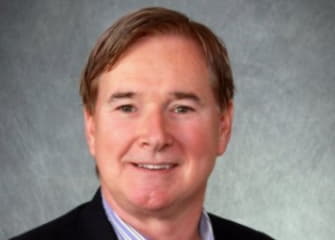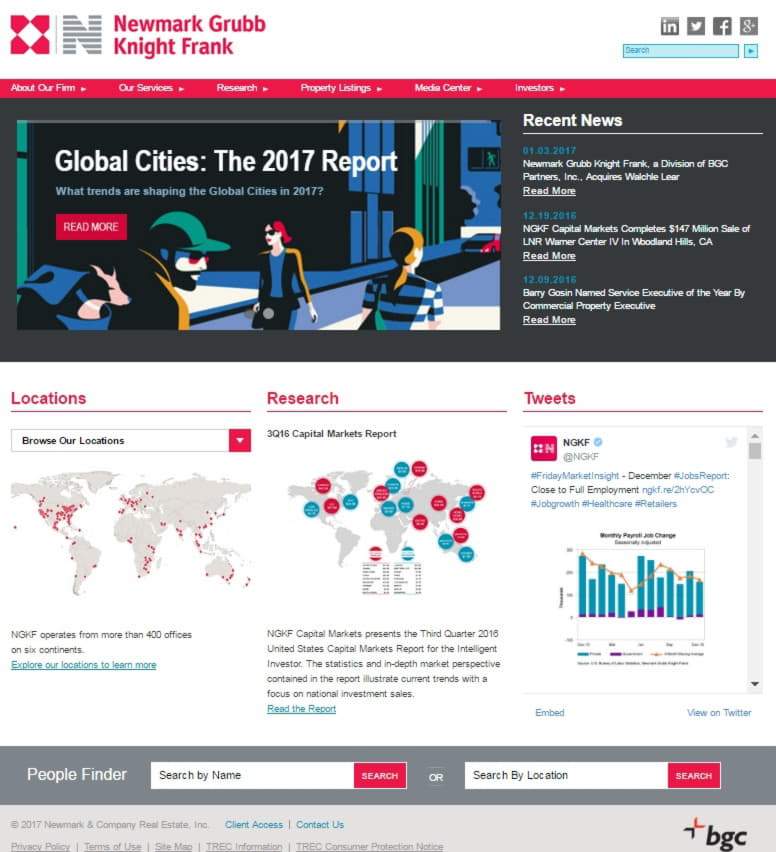
Harry Griendling
Click here for Part I, Part II, Part IV & Part V
A Greater Philadelphia firm defining best practices in the talent acquisition and HR industry
Harry Griendling is the founder and CEO of DoubleStar, a talent acquisition, advisory, and analytics consulting firm. Since 1993, Doublestar has helped hundreds of business attract and retain top talent in industries like healthcare, banking, pharmaceuticals, engineering, and biotechnology. With Harry at the helm, DoubleStar has grown into a leading partner for organizations looking to recruit staff; the company has appeared twice on the Inc 500 list of America's Fastest Growing Privately Held Companies and six times on Wharton’s Philadelphia 100 list of the fastest-growing private companies in the Philadelphia area. Recognized for his thought leadership in the HR industry, Harry has been honored as one of the inaugural inductees into the Philadelphia Business Hall of Fame.
EDWIN WARFIELD: How has the industry changed since you began?
HARRY GRIENDLING: Today, there are a lot of firms that are kind of, sort of like us. It was great in the beginning: We were the only one, and we were on an education mission, because people didn’t understand what we did. Now, we’re on an education mission, but the education is how we’re different from all of the other firms that have popped up.
The first thing that happened, which was a bad thing, I think, is that the commoditizers decided they could get into the business of contract recruiting. We are not, and never have been, a provider of contract recruiting talent. We’re a consulting firm. The difference between that is the difference between Ernst & Young and Accountemps. Accountemps has a place; Ernst & Young has a place. If you have a sophisticated SEC compliance problem, I doubt that you’re calling Accountemps. If you have a bookkeeping problem, Accountemps is a great solution.
For us, educating clients on the difference even between the concept of consulting and contracting is now the new battle. There are a lot of firms out there that offer solutions that kind of, sort of look like ours, but when you peel the onion back and you really understand it, I’m really happy to say ours is still the only solution, at least regionally or super-regionally, that has our characteristics and has been around for 23 years. It’s been amazing to think that I thought we’d be in business for 5–10 years and here we are, 23 years later, as strong as ever.
Q. How did DoubleStar make its way into working with large companies in highly specialized industries like biotech, healthcare, and pharmaceuticals?
A. When I started the company, I thought that we would be the darling of all the firms that were under 1000 employees because they were just starting to get their act together, they were just starting to grow, they may or may not have had a human resources function, their managers may or may not have had experience in hiring, so we would be a natural partner. What we learned in the first five years is that the opposite was true. Most of our clients were larger firms that had complicated recruitment systems—sometimes they were inefficient and sometimes outdated—and they really needed help modernizing and becoming more competitive as the labor markets changed in the 90s and in the years after the recession of 2001.
Fortunately, we ended up working for large companies like the Vanguard Group, GlaxoSmithKline, and Teva Pharmaceuticals. I could go look out of the window here, go around the city—you know, PECO Energy was a client of ours for a while, Cigna was a client ours for awhile, et cetera, et cetera.
I thought we would have an 80/20 mix of small to large. It was exactly the opposite. That’s enabled us to work nationally and sometimes globally and solve problems that were much bigger than what we thought we would end up doing. It’s been a great learning experience for us. We learn from every engagement we do, because we’re not working arm’s length with the client—we are working hand-in-glove with the client side-by-side. Our average project is 6–12 months. We get to know the business, we get to know the client, and it’s really been helpful to us to make us smarter to help the next client.
Connect with Harry on LinkedIn
Sponsored by:
ABOUT NEWMARK GRUBB KNIGHT FRANK
Newmark Grubb Knight Frank (NGKF) is one of the world's leading commercial real estate advisory firms. Together with London-based partner Knight Frank and independently-owned offices, NGKF’s 12,800 professionals operate from more than 370 offices in established and emerging property markets on six continents.
With roots dating back to 1929, NGKF’s strong foundation makes it one of the most trusted names in commercial real estate. NGKF’s full-service platform comprises BGC’s real estate services segment, offering commercial real estate tenants, landlords, investors and developers a wide range of services including leasing; capital markets services, including investment sales, debt placement, appraisal, and valuation services; commercial mortgage brokerage services; as well as corporate advisory services, consulting, project and development management, and property and corporate facilities management services. For further information, visit www.ngkf.com.
NGKF is a part of BGC Partners, Inc., a leading global brokerage company servicing the financial and real estate markets. BGC’s common stock trades on the NASDAQ Global Select Market under the ticker symbol (NASDAQ: BGCP). BGC also has an outstanding bond issuance of Senior Notes due June 15, 2042, which trade on the New York Stock Exchange under the symbol (NYSE: BGCA). BGC Partners is led by Chairman and Chief Executive Officer Howard W. Lutnick. For more information, please visit www.bgcpartners.com.


Edwin Warfield, CEO of citybizlist, conducts the CEO Interviews.
If you're interested in reaching CEOs, please contact edwin.warfield@citybuzz.co
Connect on LinkedIn










